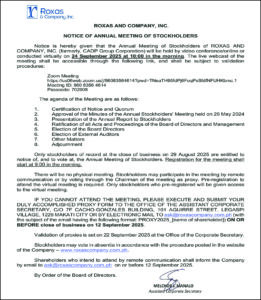THE National Government’s (NG) debt service bill fell in June as amortization on domestic debt declined, the Bureau of the Treasury (BTr) reported.
The BTr said the debt service bill was P65.14 billion in June, down 1.42%.
Month-on-month, the debt service bill fell 18.62%.
Debt service refers to the payments made by the government on domestic and foreign borrowing.
In June, amortization payments stood at P7.72 billion, down 25.99% year on year.
Principal payments on domestic debt were down 97.91% at P54 billion in June.
Amortization paid on foreign debt fell 2.39% to P7.67 billion in June.
Interest payments rose 3.19% to P57.42 billion.
Domestic interest payments increased 4.96% to P38.48 billion in June.
This consisted of P19.18 billion in retail Treasury bonds, P14.74 billion in fixed-rate Treasury bonds, P3.15 billion in Treasury bills (T-bills) and others (P1.41 billion).
Interest payments on foreign borrowing fell 0.23% to P18.94 billion in June.
In the first six months, the NG debt service bill fell 40.12% to P768.11 billion.
Amortization payments stood at P353.29 billion in the period, down 60.99%.
Principal payments on domestic debt slumped 77.5% to P170.46 billion, while external payments dropped 23.43%to P182.83 billion.
Meanwhile, interest payments rose 9.97% to P414.82 billion in the first six months. This accounted for 54.01% of the six-month tally.
Interest payments on domestic debt stood at P299.83 billion, up 11.86%.
This consisted of P193.68 billion in fixed-rate Treasury bonds, P79.26 in retail Treasury bonds, P21.85 billion in T-bills and others (P5.04 billion).
Interest payments on external debt grew 5.32% to P114.99 billion in the first six months.
Rizal Commercial Banking Corp. Chief Economist Michael L. Ricafort attributed the decline in debt repayments in June to lower NG debt maturities that “need to be serviced” relative to a year earlier.
“However, there are a large volume of maturing RTBs and other Treasury bonds worth around P800 billion from August 2025 (P516 billion) and September 2025 (P288 billion) that will increase NG debt servicing of principal payments for those months,” Mr. Ricafort said via Viber.
This year, the government’s debt service is budgeted for P2.051 trillion, consisting of P1.203 trillion in principal payments and P848.031 billion in interest payments, according to the 2025 Budget of Expenditures and Sources of Financing.
The NG debt stock hit a record P17.27 trillion at the end of June. It is projected to hit P17.35 trillion by year’s end. — Aubrey Rose A. Inosante


















